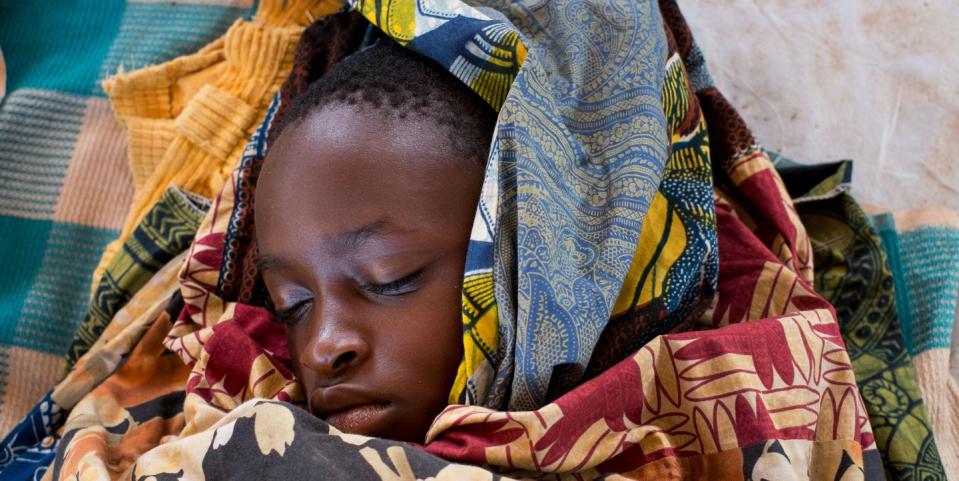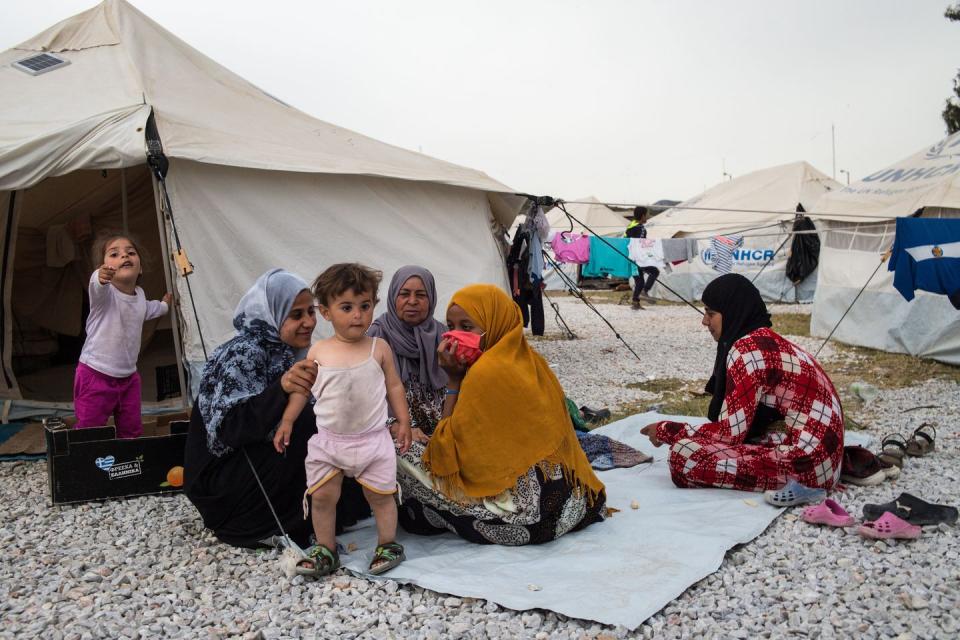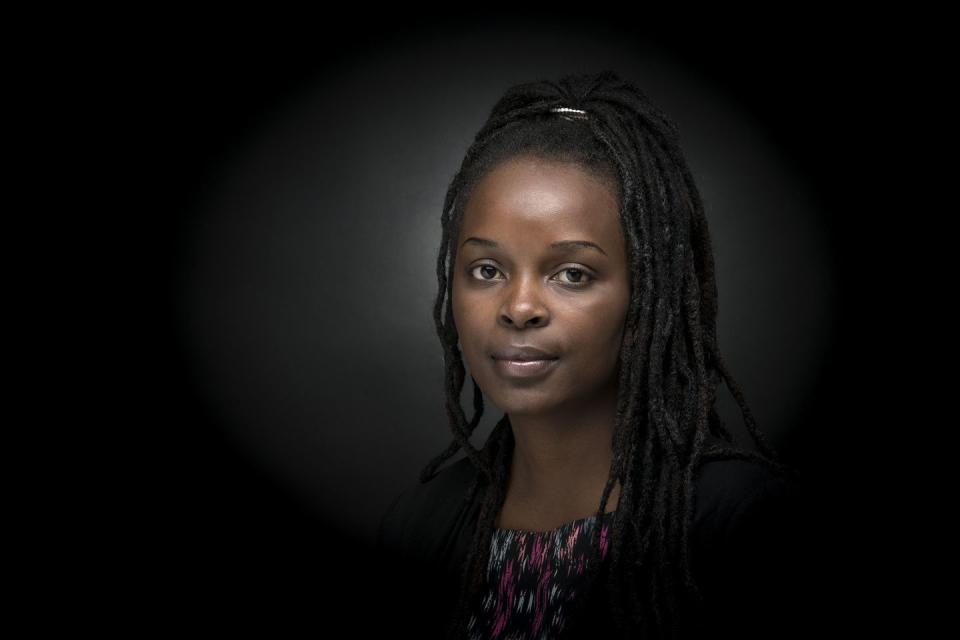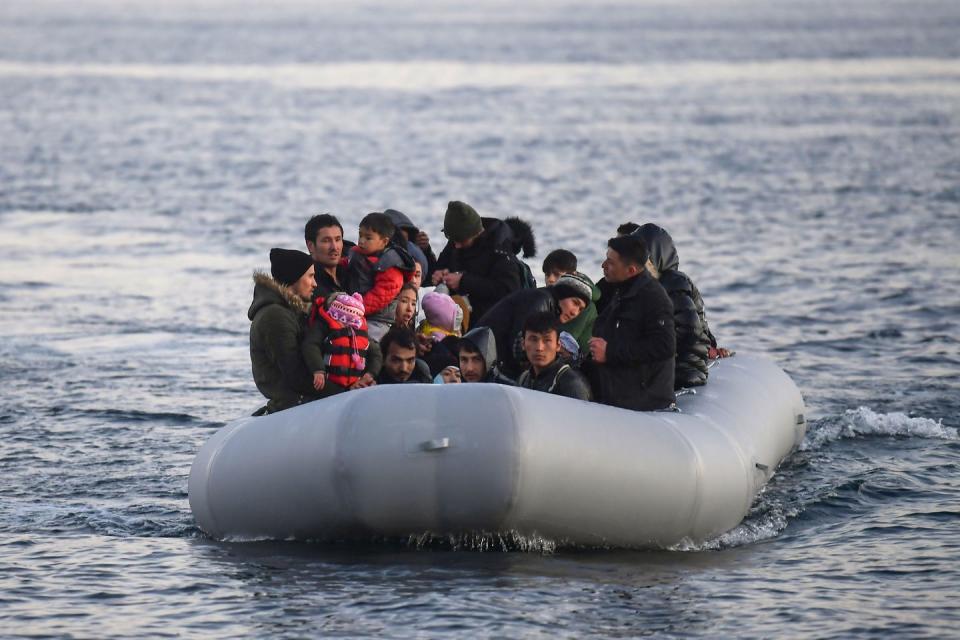I have experienced the toll of being a refugee first hand; it's time to treat us differently

June 20 is World Refugee Day, a day to celebrate the courage and contributions of the 82.4 million people around the world forced to flee their homes because of persecution or war. I was one of those people, along with many other Burundians.
I was five years old the first time I was forced to flee my home. Burundi’s first democratically elected president was assassinated leading to a wave of ethnic violence and mass killings. My father, then working as a journalist at Burundian National Radio and Television, was a target. Many of his friends were hunted down and killed. Fearing for our lives, we fled to Tanzania by boat with my mother and two siblings.
To my innocent eyes it was an exciting adventure travelling to another country. I remember feeling the wind on my face and the thrill of being on the water surrounded by the large blue Lake Tanganyika. I quickly realised it was different from the adventure I had imagined. I wasn't able to go to school and our whole family had to share a single bed. We stayed in Tanzania for several months; enough time for me to learn a whole new language, Swahili, and also enough time to lose my younger brother Monfort Kabanga. We never talked about him again or anything about Tanzania after we returned to Burundi to rebuild our lives. Our time there left a mark on my family.
My second journey fleeing Burundi occurred in different circumstances. This time, I was alone, a woman in her mid-twenties. I was also in the very privileged position of having lived in Australia’s capital city, Canberra for just under two years as a student. I had been awarded a prestigious scholarship to undertake a Master’s degree at the Australian National University where I learned Aussie slang, adjusted to the culture and faced my first cold winter. That experience transformed me and empowered me.
When I returned to Burundi at the end of my studies in August 2014, there was already tension about whether the president would hand over power and what might happen. Violence escalated quickly – there were demonstrations, killings, a coup and most media was shut down. As a result, more than 400,000 Burundians fled the country again. We all feared that the horrors of the past would repeat themselves.


In 2015, I was invited to present a paper at a conference in Melbourne. While there, I was compelled to seek safety as going home could mean torture, rape or death. I had no idea what was ahead of me or the challenges I would face.
I was first struck by the loneliness I faced in the first few days after my arrival. I looked for work and only received rejections. I spent many days and nights homesick, and worried about my family in Burundi. The trauma I carried from Burundi was amplified by unemployment, social isolation and boredom. During the day I lived in Australia, but at night my mind sent me to Burundi.
I didn’t feel at home in Australia for a very long time. There are so many misconceptions about people seeking asylum - perhaps because of the harsh refugee policies implemented by so many governments. In Australia, we were portrayed as illegal queue jumpers, criminals, and guilty suspects flooding the country who needed to be kept away. Of course, none of that is true. We are human beings with a body, heart and soul just like everyone else. We have been forced, through circumstances outside of our control - civil conflict, war, persecution because of our ethnicity, political views or religion - to run for our lives.
Eventually I got a job and started making friends and my mental health began to improve. I was given accommodation with other people who were also seeking asylum. I formed a close bond with an older woman, Wendy, in her mid-eighties whom I met at church. She acted as my guardian angel, asking me about my life with so much kindness and love. She took me out for meals, invited me to concerts and made sure I never felt alone. One day she surprised me with a piano book and started giving me lessons after mass. As a Christian, she didn’t understand why the government was putting me in so much distress or why they hadn’t provided an update on my application. But after four and half years waiting, to my utter relief, I was finally granted refugee status.

Life is better now, but, like everyone, I face challenges – some because of who I am. As a person of colour, a woman from African heritage and a refugee, I am in the minority, and I face racism and discrimination on a daily basis. The intersection of my race, gender and migration status affects every part of my life. People often say, “your English is so good”, as if to remind me that I am not from here. Or they say things such as, “you do so much in this country, you should be allowed to stay” as if I needed to earn my place. Or “You are one of the good ones, look at all the things you are doing in the community!” One colleague asked me if things were really that bad in Burundi. These careless words, micro-aggressions, are so common and they hurt so much. I wish they would stop.
Australia’s own history is built on colonisation, dispossession and violence against Aboriginal and Torres Strait Islander peoples. Australia has its way of treating Black and brown people which means that often I don’t feel that I belong. From sensationalist media that fuels racism to the lack of diversity in various spaces that surround me, it can feel like a constant struggle to fit in.
There are also things I can’t do, even now that I have been granted refugee status. I can’t reunite with my family because of the ongoing violence in Burundi. I dream of the day I will be able to hug my mother again. It’s been nearly six years since I was last able to feel her arms around me. I have all these ideas of daughter-mother dates that we’ll go on. I want to cook for her; she’d be so impressed by my new culinary expertise. I want to take her out to a fancy restaurant and chat and catch up. I want us to go to a nice spa, relax with a massage and get our nails done together. Recently, I have taken up swimming lessons and I know how mum fears the water. I’d like to take her to lessons with me and laugh with her as she learns to enjoy water. I so want her to meet Jack, my fiancé and her future son-in-law. Before bed, I want her to give me that small blessing with the sign of the cross like she used to do when I was little. Maybe when I become an Australian citizen, I will finally be able to travel to meet her somewhere.


For now, I will concentrate on my studies, my new family and dig deep into my new life – reaching out to form new relationships with colleagues, classmates and neighbours. I will take advantage of new opportunities, such as the Refugee Journalist Mentorship Programme at UNHCR, the UN Refugee Agency, which is helping me hone my skills as a storyteller.
This World Refugee Day, I have a question for you. Why not get to know someone in your local community who is far from home? There are so many people who are living in Australia, including many thousands on special visas that allow them to stay in the country while they wait for their asylum claims to be heard. They exist in every city. They bring their stories, diverse backgrounds, professional skills, languages and rich cultures and are only looking forward to living in a peaceful community. To avoid them – us – is to miss out on an incredible opportunity for friendship.
Mireille Kayeye lives in Melbourne, where she is doing a PhD in forced migration at the University of Melbourne to investigate the “lived experience” of women who have sought asylum in Australia. She is currently a participant in the UN Refugee Agency’s Refugee Journalist Mentorship Programme.
Make a donation to the UN Refugee Agency at donate.unrefugees.org.uk.
You Might Also Like

 Yahoo Finance
Yahoo Finance 